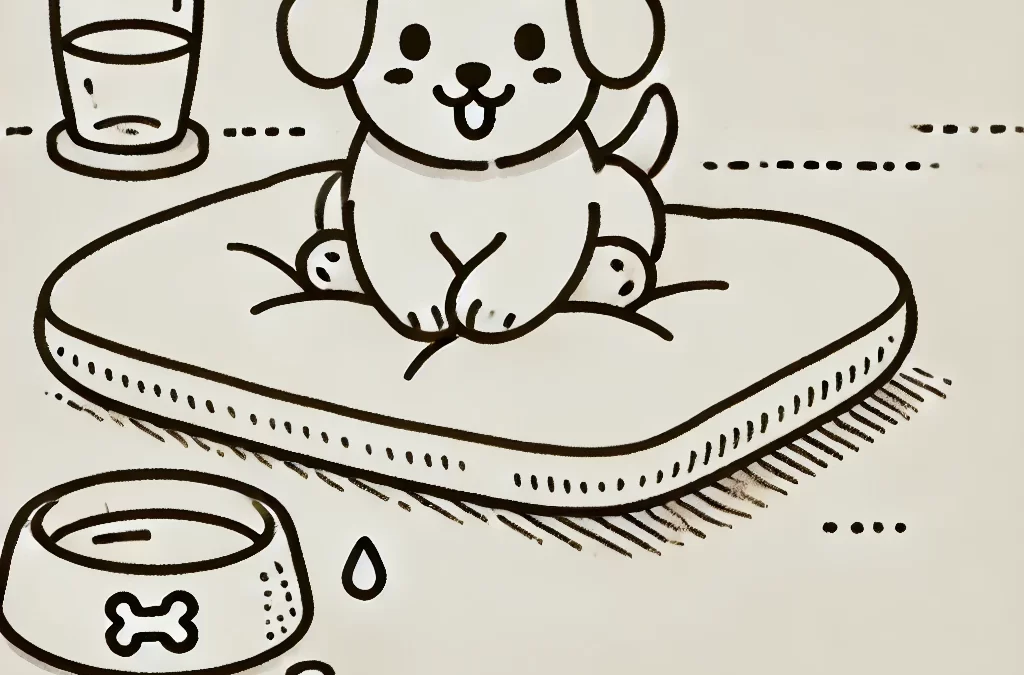Chemotherapy can be a lifesaving treatment for dogs with cancer, but it often comes with side effects that impact their quality of life. While chemotherapy for dogs is generally less aggressive than in humans, many dogs still experience digestive issues, fatigue, appetite loss, and weakened immunity. Understanding how to minimize discomfort and provide proper nutritional and supportive care can make a significant difference in your dog’s well-being during treatment.
Common Side Effects of Chemotherapy in Dogs
🐶 Gastrointestinal Issues – Vomiting, diarrhea, nausea, and loss of appetite are common due to chemotherapy’s impact on fast-dividing stomach lining cells.
🐶 Fatigue & Weakness – Your dog may be more tired than usual and prefer longer rest periods.
🐶 Lowered Immunity – Chemotherapy can reduce white blood cell counts, making your dog more prone to infections.
🐶 Hair Loss (in Certain Breeds) – While most dogs don’t lose much hair, breeds with continuously growing coats (e.g., Poodles) may experience noticeable thinning.
🐶 Mouth Ulcers & Drooling – Some dogs develop mouth sores, leading to discomfort while eating.
How to Alleviate Chemotherapy Side Effects?
1. Managing Nausea & Vomiting
- Feed small, frequent meals instead of large portions.
- Offer bland, easily digestible foods like boiled chicken, white rice, and pumpkin.
- Ginger (fresh or in supplement form) can help reduce nausea.
- If vomiting persists, ask your vet about anti-nausea medications like Cerenia (maropitant).
2. Supporting Appetite & Preventing Weight Loss
- Warm up your dog’s food slightly to enhance aroma and encourage eating.
- Try high-calorie, nutrient-dense foods such as cooked eggs, lean meats, and cottage cheese.
- Consider adding bone broth or goat milk to meals for extra hydration and nourishment.
- If your dog refuses food, appetite stimulants like Mirtazapine may help.
3. Preventing Diarrhea & Dehydration
- Use probiotics (e.g., FortiFlora) to support gut health.
- Feed foods rich in soluble fiber like canned pumpkin or steamed sweet potatoes.
- Ensure constant access to fresh water and offer electrolyte solutions if diarrhea persists.
- Consult your vet if diarrhea lasts more than 24 hours or includes blood.
4. Boosting the Immune System
- Include antioxidant-rich foods like blueberries, turmeric, and omega-3 fatty acids.
- Medicinal mushrooms (e.g., Turkey Tail, Reishi) may help modulate immune function.
- Avoid raw diets during chemotherapy, as weakened immunity increases infection risks.
5. Managing Fatigue & Weakness
- Allow your dog extra rest but encourage light activities like short walks for circulation.
- Provide a comfortable, warm resting space with soft bedding.
- Consider gentle massage therapy or acupressure to ease tension and improve relaxation.
6. Caring for Mouth Sores & Drooling
- Offer soft or moistened food to reduce irritation.
- Use pet-safe oral rinses (e.g., chlorhexidine solution) to prevent infections.
- Coconut oil can be applied to gums for its soothing and antibacterial properties.
Supplements That May Help
🌿 Milk Thistle – Supports liver detoxification from chemotherapy drugs.
🌿 CBD Oil – May help with pain relief, nausea, and inflammation.
🌿 L-Glutamine – Supports gut lining health and reduces diarrhea risk.
🌿 Omega-3 Fatty Acids (Fish Oil) – Provides anti-inflammatory benefits and supports immune health.
When to Contact Your Vet?
🚨 Persistent vomiting or diarrhea lasting over 24 hours
🚨 Severe lethargy or collapse
🚨 Signs of infection (fever, swollen lymph nodes, excessive panting)
🚨 Loss of appetite for more than two days
🚨 Uncontrolled bleeding or bruising
Final Thoughts
Managing chemotherapy side effects in dogs requires a balanced approach combining nutritional support, home care, and veterinary guidance. By closely monitoring your dog’s response and making necessary adjustments, you can help them navigate treatment with greater comfort and resilience.















